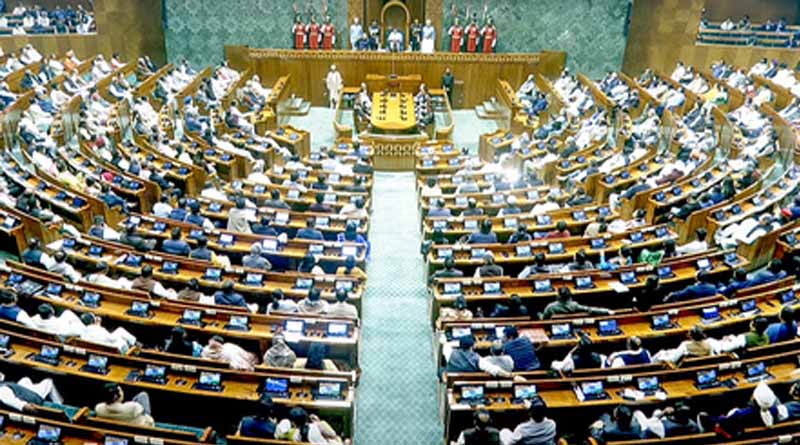Waqf Bill 2024: Bid to ensure inclusivity, improve income from property
New Delhi, March 31 : The appeal by Kerala Catholic Bishops’ Council (KCBC) to all Members of Parliament from Kerala to support the Waqf (Amendment) Bill 2024 introduced by the Central government has renewed the debate over the key benefits from the proposed legislation.
The Bill proposes reforms in Waqf governance aimed at addressing inefficiencies, legal conflicts, and public grievances. It says ensuring inclusivity is essential for Waqf institutions to fulfil their intended purpose and maximise their impact on society.
What is Waqf
A Waqf is a permanent dedication of movable or immovable property for religious, pious, properties is governed by the Waqf Act, 1995, and is overseen by State Waqf Boards and the Central Waqf Council.
There are 32 Waqf Boards across 23 states and 7 Union Territories, with Bihar and Uttar Pradesh having separate Shia and Sunni Waqf Boards.
Nationwide assets
Waqf Boards currently control 8.72 lakh properties spanning 9.4 lakh acres across India with an estimated value of Rs 1.2 lakh crores. India has the largest Waqf holding in the world. Further, Waqf Board is the largest landowner in India after the Armed Forces and the Indian Railways.
Of these 8.72 lakh properties, only 1,088 have registered Waqf deeds, and 9,279 have Ownership Rights Establishing (ORE) documents.
Interestingly, many Islamic countries do not have Waqf properties. Countries such as Turkey, Libya, Egypt, Sudan, Lebanon, Syria, Jordan, Tunisia, and Iraq do not have Waqfs. However, in India, not only are Waqf Boards the largest urban landowners, but they also have an Act protecting them legally.
New Bills
On August 8, 2024, two bills, the Waqf (Amendment) Bill, 2024, and the Mussalman Wakf (Repeal) Bill, 2024, were introduced in the Lok Sabha with the aim to streamline the Waqf Board’s work and ensure the efficient management of Waqf properties.
The objective of the Waqf (Amendment) Bill, 2024, is to amend the Waqf Act, 1995, to redress the issues and challenges in regulating and managing Waqf properties. The Amendment Bill seeks to improve the administration and management of Waqf properties in India.
It aims to overcome the shortcomings of the previous act and enhance the efficiency of Waqf boards by introducing changes such as renaming the Act, updating the definitions of Waqf, improving the registration process, and increasing the role of technology in managing Waqf records.
The primary objective of the Mussalman Wakf (Repeal) Bill, 2024 is to repeal the Mussalman Wakf Act, 1923, a colonial-era legislation that has become outdated.
Key features of Waqf Bill 2024
Besides recognising women and non-Muslims as stakeholders, the Bill focuses on enhancing inclusivity in Waqf governance with the inclusion of marginalised Muslim communities.
It also proposes establishment of separate Board for Aghakhani and Bohras communities and involvement of Pasmanda Muslims in decision-making in the Board.
Greater inclusivity proposed by the Bill aims to prevent monopolisation, strengthen oversight, and enhance public trust.
Also, effective governance will ensure Waqf assets contribute meaningfully to education, healthcare, and economic empowerment.
The governance failures leading to mismanagement in Board was also highlighted by the Justice Rajinder Sachar Committee (2006) reported that annual income from 4.9 lakh registered Waqf property yields income of only Rs 163 crore at 2.7 per cent return.
However, with efficient and marketable use these properties could generate a return of Rs 12,000 crore per annum at 10 per cent return (2006 data).
Proposed changes to 1995 Act
Formation of Waqf: The Waqf Act 1995 allows Waqf to be formed by declaration, recognition based on long-term use (Waqf by user), or endowment when the line of succession ends (Waqf-alal-aulad).
However, the Waqf (Amendment) Bill, 2024 states that only a person practicing Islam for at least five years may declare a Waqf. It clarifies that the person must own the property being declared.
It removes Waqf by user, where properties could be deemed as Waqf based solely on prolonged use for religious purposes.
It also adds that Waqf-alal-aulad must not result in denial of inheritance rights to the donor’s heirs, including women.
Power to determine if a property is Waqf: The Act empowers the Waqf Board to inquire and determine if a property is Waqf. The Bill removes this provision.
Appeal on orders of Tribunals: Under the Act, decisions of the Tribunal are final and appeals against its decisions in courts are prohibited. The High Court can consider matters on its own accord, on an application by the Board, or an aggrieved party.
The Bill omits provisions deeming finality to Tribunal’s decisions. Tribunal’s orders may be appealed in the High Court within 90 days.
Powers of the Central government: The Bill empowers the Central government to make rules regarding registration, publication of accounts of Waqf, and publication of proceedings of Waqf Boards.
Under the Act, the state government may get the accounts of Waqfs audited at any point. The Bill empowers the central government to get these audited by the CAG or a designated officer.









